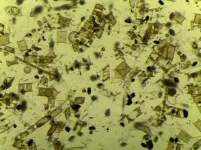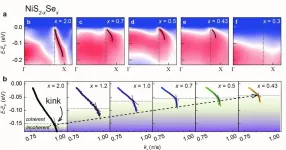The researchers made use of the comprehensive and internationally unique UK Biobank database, which includes health and genetic information from over half a million participants from across the UK, including detailed magnetic resonance imaging (MRI) of their hearts as well as linkages to COVID-19 test results from Public Health England.
The team investigated records from 310 Biobank participants to see whether pre-existing features of the heart anatomy and function, as demonstrated on heart MRI scans, were linked to having a positive COVID-19 test result.
The findings, published in the journal of Aging Clinical and Experimental Research, demonstrate that people with pre-existing unhealthy heart structures and poorer heart function were more likely to test positive for COVID-19. These relationships appeared important even after accounting for possible predisposing factors such as age, sex, ethnicity, deprivation, diabetes, high blood pressure, high cholesterol, and previous heart attack.
Dr Zahra Raisi-Estabragh, BHF Clinical Research Training Fellow at Queen Mary University of London and lead researcher, said: "In this research, we've discovered that poorer heart structure and function is linked to a higher risk of subsequent COVID-19. This is important because some studies have suggested that COVID-19 may cause structural damage to the heart. However, these studies only use heart scans from people after infection, so they cannot be certain whether the poor heart structures pre-existed COVID-19.
"In our study, we used imaging data obtained before COVID-19, and showed that many of these abnormalities likely pre-exist and predispose people to COVID-19, rather than occur as a result of infection. This is a very important distinction for guiding our management of patients with COVID-19."
Professor Steffen Petersen, Professor of Cardiology at Queen Mary University of London who supervised the project said: "There is currently a lot of uncertainty around the relationships between the heart and COVID-19. Our work adds a new perspective to this issue, helping to inform patient care and public health strategies. However, further studies in diverse populations and settings are required to definitively answer these questions."
Professor Nick Harvey, Professor of Rheumatology and Clinical Epidemiology at the MRC LEU, University of Southampton, who co-supervised the work added "This national collaboration and the wealth of information available in the UK Biobank database permitted a highly detailed analysis, providing novel and unique insights into the complex interactions between the heart and COVID-19. It illustrates the importance for the University of Southampton and the MRC LEU of our ongoing contribution to the leadership of the large, state-of-the-art, multidisciplinary Imaging Study as part of the unique world-leading UK Biobank resource."
The researchers have received funding from the British Heart Foundation, National Institute for Health Research (NIHR), the European Union's Horizon 2020 programme, EPSRC, UK Medical Research Council and the Medical College of Saint Bartholomew's Hospital Trust.
INFORMATION:
For more information, please contact:
Joel Winston
Communications Manager (School of Medicine and Dentistry)
Queen Mary University of London
j.winston@qmul.ac.uk
Tel: +44 (0)7968 267 064
Notes to the editor
* Research paper: 'Adverse cardiovascular magnetic resonance phenotypes are associated with greater likelihood of incident coronavirus disease 2019: Findings from the UK Biobank'. Zahra Raisi-Estabragh, Celeste McCracken, Jackie Cooper, Kenneth Fung, José M. Paiva, Mohammed Y. Khanji, Elisa Rauseo, Luca Biasiolli, Betty Raman, Stefan K. Piechnik, Stefan Neubauer, Patricia B. Munroe, Nicholas C. Harvey, Steffen E. Petersen. Aging Clinical and Experimental Research. DOI: 10.1007/s40520-021-01808-z
Available here: https://doi.org/10.1007/s40520-021-01808-z
About Queen Mary University of London
At Queen Mary University of London, we believe that a diversity of ideas helps us achieve the previously unthinkable.
In 1785, Sir William Blizard established England's first medical school, The London Hospital Medical College, to improve the health of east London's inhabitants. Together with St Bartholomew's Medical College, founded by John Abernethy in 1843 to help those living in the City of London, these two historic institutions are the bedrock of Barts and The London School of Medicine and Dentistry.
Today, Barts and The London continues to uphold this commitment to pioneering medical education and research. Being firmly embedded within our east London community, and with an approach that is driven by the specific health needs of our diverse population, is what makes Barts and The London truly distinctive.
Our local community offer to us a window to the world, ensuring that our ground-breaking research in cancer, cardiovascular and inflammatory diseases, and population health not only dramatically improves the outcomes for patients in London, but also has a far-reaching global impact.
This is just one of the many ways in which Queen Mary is continuing to push the boundaries of teaching, research and clinical practice, and helping us to achieve the previously unthinkable.
About UK Biobank
UK Biobank is a large-scale biomedical database and research resource containing genetic, lifestyle and health information from half a million UK participants.
UK Biobank's database, which includes blood samples, heart and brain scans and genetic data of the 500,000 volunteer participants, is globally accessible to approved researchers who are undertaking health-related research that's in the public interest.
UK Biobank recruited 500,000 people aged between 40-69 years in 2006-2010 from across the UK. With their consent, they provided detailed information about their lifestyle, physical measures and had blood, urine and saliva sample collected and stored for future analysis.
UK Biobank's research resource is a major contributor in the advancement of modern medicine and treatment, enabling better understanding of the prevention, diagnosis and treatment of a wide range of serious and life-threatening illnesses - including cancer, heart diseases and stroke.
UK Biobank is generously supported by its founding funders the Wellcome Trust and UK Medical Research Council, as well as the Department of Health, Scottish Government, the Northwest Regional Development Agency, British Heart Foundation and Cancer Research UK. The organisation has over 150 dedicated members of staff, based in multiple locations across the UK.
You can find out more about UK Biobank at http://www.ukbiobank.ac.uk
University of Southampton
The University of Southampton drives original thinking, turns knowledge into action and impact, and creates solutions to the world's challenges. We are among the top 100 institutions globally (QS World University Rankings 2021). Our academics are leaders in their fields, forging links with high-profile international businesses and organisations, and inspiring a 22,000-strong community of exceptional students, from over 135 countries worldwide. Through our high-quality education, the University helps students on a journey of discovery to realise their potential and join our global network of over 200,000 alumni. http://www.southampton.ac.uk




